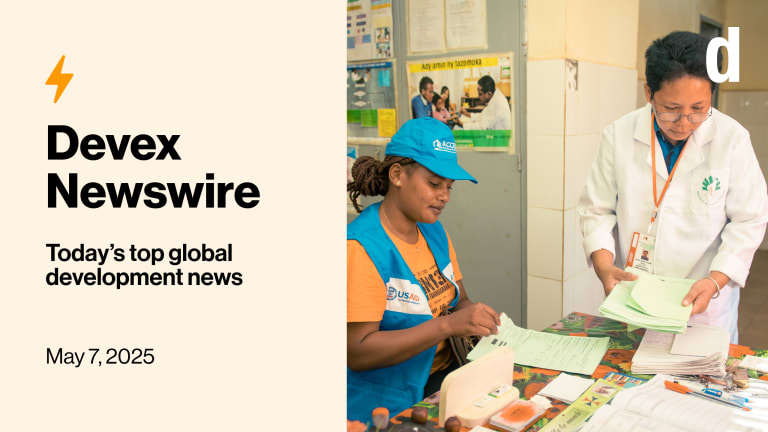
The United Nations and three countries announced they will be providing fresh assistance to ensure Pakistan’s flood victims will continue to receive vital emergency relief. The announcement came following the world body’s recent warning that relief supplies for more than 5 million people affected by floods in Pakistan could run out in weeks if donors will not step up response to the crisis.
The new U.N. funding, amounting to some $17.6 million, will come from the Central Emergency Response Fund and will support the operations of U.N. agencies and the International Organization for Migration in the worst-hit southern provinces. It will be used to provide safe drinking water, sanitation services, food, shelter materials and other essential support.
The German government also announced Oct. 6 it will be providing additional emergency aid of €5.6 million ($7.5 million) to flood victims in Sindh and Balochistan provinces. The announcement was made upon the conclusion of Parliamentary State Secretary at the Federal Ministry for Economic Cooperation and Development Gudrun Kopp’s weeklong visit to Afghanistan and Pakistan. Germany’s assistance will be coursed through the World Food Program and non-governmental organizations, Kopp said.
The U.K. government, meanwhile, said it will be providing emergency shelter and flood-resistant houses to more than 255,000 Pakistanis who lost their homes due to the floods. Department for International Development secretary Andrew Mitchell also said U.K.’s flood aid for Pakistan will continue into 2012.
Similarly, the Brazilian government will be donating 710,000 tons of food items worth around $412 million, which will be distributed through WFP. It will also provide some $350,000 in cash for direct humanitarian assistance to the flood victims, which will be coursed through the U.N. High Commission for Refugees.
The new donations came amid calls by the United Nations and other aid groups for donors to dig deep into their pockets. Out of the $357 million required to support the Pakistan Floods Rapid Response Plan launched by the United Nations and its partners last month, only 15 percent has been met.
Some experts believe the reason for the sluggish donor response to this year’s floods compared with 2010’s is the lack of public awareness about the extent of the devastation due to the dearth of news reporting from flood-affected areas.
Other factors for the donor fatigue, experts say, could be the Pakistani government’s perceived ‘mismanagement’ of the relief effort last year and its failure to implement disaster risk-reduction measures.
If the Pakistani government had implemented the DRR plan drawn up by experts, it would have required “spending just $30 million then and would have saved billions of dollars now,” said Mubashir Akram, spokesperson for the U.K.-based charity Oxfam.
Read more:
In Pakistan, Flood Victims’ Suffering Worsens Amid Fears of Disease Outbreak
UN Says Relief Supplies for Pakistan Could Run Out in Weeks, Steps up Flood Appeal
‘Bad Brand’: Why Some Donors Shy Away from Pakistani Aid Appeals
Read more development aid news online, and subscribe to The Development Newswire to receive top international development headlines from the world’s leading donors, news sources and opinion leaders — emailed to you FREE every business day.




